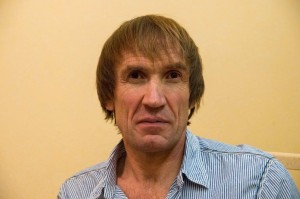 We are glad to invite you to a seminar by Dr. Yaroslav Ispolatov, titled “Diversity and Co-Evolutionary Stability”
We are glad to invite you to a seminar by Dr. Yaroslav Ispolatov, titled “Diversity and Co-Evolutionary Stability”
When: December 16, 2015, 14.30 – 16.00
Where: TPOC-3, Room 148
Seminar abstract
One of the fundamental problems in evolutionary biology is to understand how micro-evolutionary processes generate macro-evolutionary patterns. For example, what micro-evolutionary processes cause repeating patterns of stasis and subsequent rapid changes, often referred to as “punctuated equilibria’’, and whether species diversity saturates over evolutionary time in a given environment.
We have recently argued that if evolution takes place in high-dimensional phenotype spaces, then the evolutionary dynamics, that is, the phenotypic change over evolutionary time, can be non-stationary and even chaotic. When a species, evolving along a simple trajectory, gives rise to diversification, the effective dimensionality of the evolving system increases. Due to the increase in dimensionality, one could expect that diversification, i.e., the emergence of co-evolving species, leads to more complex evolutionary dynamics for each of the species in the community. On the other hand, as a community becomes more diverse and evolves towards saturation, the available niches tend to get filled, and hence evolutionary change in each species is expected to be constrained, potentially leading to evolutionary steady state. It is thus unclear how the nature of the evolutionary dynamics changes with the degree of diversity during community assembly.
Here we show for a general class of competition models that in low-dimensional phenotype spaces, there is a humped-shaped relationship between diversity and the complexity of evolutionary dynamics: in communities with low diversity, coevolutionary dynamics often converging to a steady state; for intermediate degrees of diversity, complex non-stationary co-evolutionary dynamics are common; and for high amounts of diversity, co-evolutionary dynamics become simple and stationary again. Thus through adaptive diversification, co-evolutionary dynamics change from simple to complex and back to simple.
Speaker introduction
Education: MS (6-year diploma) MPhTI, Dept. Chemical and Molecular Physics. PhD, Boston University, Dept. of Physics. Postdocs: McGill University, Montreal, Canada; Cornell University, Ithaca, US; Rockefeller University, NY, US. Employment: Universidad de Santiago, Chile; University of British Columbia, Vancouver, Canada; Ariadne Genomics Inc., Germantown, US.
